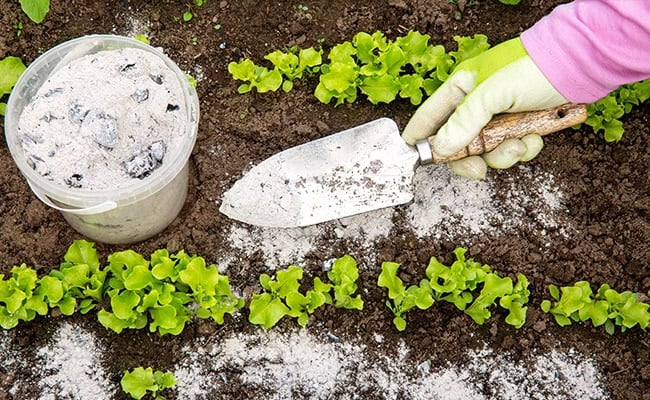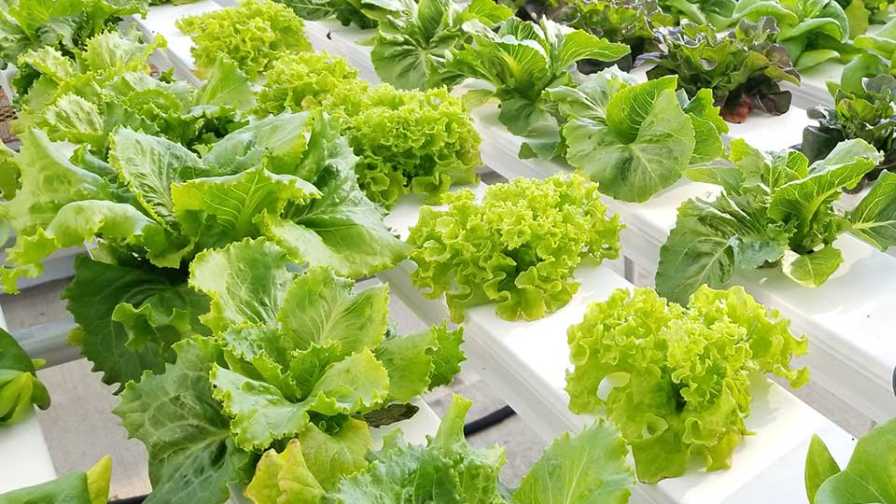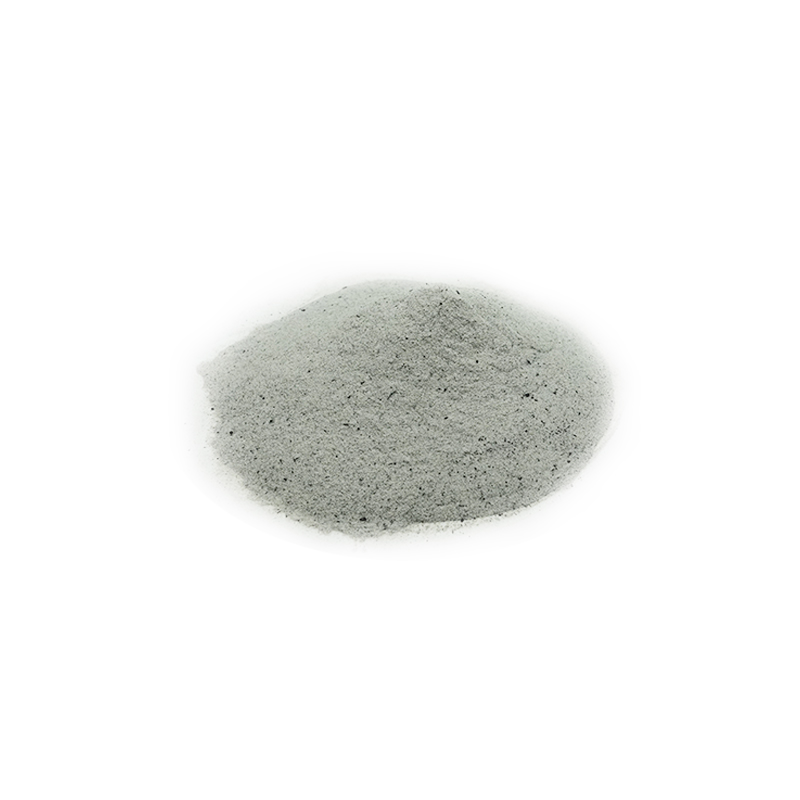Introduction to Organic Fertilization for Lettuce
The search for sustainable and efficient agriculture has seen organic fertilizer for lettuce gain popularity. Indeed, organic fertilizers provide a wide range of advantages in growing lettuce making them the most preferred option among environmentally conscious gardeners as well as commercial farmers. The organic system also ensures that the lettuce is free from synthetic chemicals thereby making it more appealing to health-conscious consumers, besides enhancing ecological balance by improving soil health.
The significance of selecting the correct organic fertilizer for lettuce cannot be overemphasized. It affects not only the growth and yield of the lettuce but also its nutritional content and taste. Dr. James Peterson, a leading agronomist, emphasizes, “It is important to select an appropriate type of organic fertilizer in order to optimize plant health and yields. For example if you do not use the right formulation there will not be balanced nutrients required by plants especially vegetables such as lettuce which grow very fast.”
Through effective use of organic fertilizers, it promotes strong plant growth; increase in organically matter of the soil; foster beneficial microbes activity within root zone this collectively lead to healthier plants and more sustainable farming practice thus demonstrating beyond doubt how much organic fertilization is beneficial when it comes to cultivating lettuces.
Types of Organic Fertilizers Suitable for Lettuce
When using organic methods to grow lettuce, choosing the right kind of fertilizer can make all the difference between producing great results or having a failing crop. There are numerous types of organic fertilizer for lettuce with each one offering different pros and cons some even have risks associated with them hence understanding these factors helps gardeners and farmers make better decisions based on their specific cultivation needs.
Compost: compost is rich in nutrients and microorganisms that make it one of the best types of organic fertilizers for growing lettuces. This helps improve soil structure, increase moisture retention while slowly releasing nutrients which makes it ideal for supporting continued growth of lettuce. However, it is important to check the level of nutrients present in a given compost as they may vary depending on the materials that have been used.
Manure: Common manures used include chicken, cow and horse manure which are rich in nitrogen and other essential elements. Nonetheless, these must be well-rotted down before being used to prevent spreading diseases or burning plants due to high ammonia levels in fresh manure.
Fish Emulsion: It is a liquid fertilizer with more nitrogen making it an excellent choice for leafy vegetables like lettuce. Fish emulsion is easily taken up by plants thus serving as a fast feed source. However, the main disadvantages are its strong smell and frequent application due to its quick acting nature.
Seaweed Extracts: These products contain a wide range of trace elements and plant hormones that promote growth hence helping with root development while also increasing plant vigor (Tisdale et al., 1985). Though seaweed extracts offer many micronutrients, they are generally lower in NPK (nitrogen, phosphorus, potassium) which means ideally they should be used together with other fertilizers to cover all nutritional requirements.
According to Dr. Helen Thompson who works as soil scientist “Mixing different kind of organic fertilizers can help maximize your lettuce growth. You should try different types including enough compost for soil healthiness; sufficient manure for nutrient content while providing sufficient trace elements such as seaweed”
Moreover, farmers can adjust their use of organic fertilizers based on the characteristics and effects of each type. Such knowledge is important to optimize organic farming practices on lettuce.

Lettuce Organic Fertilizers and Key Nutrients
Understanding the key nutrients for growth of lettuce is important when using organic fertilizers to grow it. These nutrients are involved in different parts of the plant’s development such as leaf formation and root health. The following are major nutrients that they need and how they facilitate healthy growth of lettuce.
Nitrogen (N): Nitrogen is essential for lettuce leaf development which results in a vigorous green appearance. As for lettuces being a leafy vegetable, nitrogen is by far the most significant nutrient responsible for rich sturdy foliage. Some examples of organic sources with high nitrogen content include fish meal, blood meal, or manure that has been composted.
Phosphorus (P): This nutrient supports root development and general plant vigor. For lettuce at the early stage of growth, phosphorus is critical in ensuring good root system formation which also helps in nutrient uptake and overall stability. Bone meal or rock phosphate can be used as good sources of organic phosphorus.
Potassium (K): Potassium enhances overall plant health through regulation of cellular activities and increased resistance to diseases. Its movement within plants facilitates water, nutrients, and carbohydrate movements within tissues thus promoting fast growth and healthy hardiness levels among others on lettuce. Kelp meal and wood ashes are some effective sources for this vital plant nutrient.
Other than these macronutrients, some micronutrients such as calcium magnesium sulphur are also important to be considered. Calcium gives cells their tone; magnesium constitutes most chlorophyll molecules while sulphur aids protein synthesis as well as general strength in plants.
Dr Maria Gonzales who specializes on Plant Nutrition emphasized the importance of balanced nutrition,” “Feeding NPK plus essential micros through organics will greatly enhance not only its growth but also improve its taste and nutritional quality.”
Growers should understand how to manage these key nutrients when dealing with organic fertilizers so that they can optimize both the health and productivity of their lettuce crops with ensured bounty and nutrition.
Applying Organic Fertilizer to Lettuce
Well-put application of organic fertilizer in lettuce farming is vital for maximizing the crop’s growth potential and health. Here are step-by-step instructions and top practices that would enable you to effectively fertilize your lettuce.
Fertilizer Application Step By Step Guide
- Soil Preparation: Prior to planting, mix organic fertilizers with soil. This can be done by spreading the fertilizers evenly on the planting area then mixing them into the top 6-8 inches of soil using a rake or hoe.
- Planting Time: While transplanting your lettuce seedlings, apply some starter solution of liquid organic fertilizer like fish emulsion or seaweed extract to them. This will give them an immediate nutrient boost which helps in root establishment.
- During Growth: Liquid organic fertilizers should be applied every 2-3 weeks as lettuce grows rapidly. Use a diluted solution to water plants at their bases so as to avoid spraying directly onto leaves in order to prevent fungal diseases from infecting them.
- Top-Dressing: In mid-season, around the base of plants, use solid organic fertilizer e.g. compost. Known as top-dressing, it involves replacing nutrients used during early stages of growth.
Best Practices for Timing and Dosing
- Consistency: Let your applications be consistent unlike heavy doses given infrequently; regular light feedings benefit lettuce because nutrient overload might cause runoff problems.
- Monitor Growth: Look at how your lettuce is growing and leaf color. Yellow or pale leaves may indicate a lack of nitrogen, requiring slightly more amount of a nitrogen-rich organic fertilizer than average dosage.
- Weather Considerations: Depending on climatic conditions, adjust when you are going to feed your crops with fertilizers. In rainy days nutrients from soil can easily drain out while cooler temperatures slow down plant uptake of nutrients, therefore preventing healthy growth development cycles coming into play during these periods.
Expert Insight
According to Dr. Emily Foster, an expert horticulturalist in organic crops, “You must adapt your fertilization technique according to current soil fertility and lettuce growth stage. Over-fertilization can be just as detrimental as under-fertilization, particularly in organic systems where balance is key.”
Following these specific application tips and understanding lettuce’s natural growth cycle will improve both yield and quality of the salad crop, grown in an ecologically sustainable manner. This systematic way of fertilizing plants will result in greater yields hence a healthier harvest.
Troubleshooting Common Issues When Using Organic Fertilizers
There are certain problems you could face when using organic fertilizer for lettuce that can affect the health and productivity of your crops. Identifying these problems in time and dealing with them can help you keep ideal growing conditions.
Common Problems and Their Solutions
- Nutrient Burn: This is when too much fertilizer application occurs which results in burnt leaves and retarded growth.Solution: Water plants affected generously so as to rid nutrients excess. For example, next time reduce the amount of fertilizer used while increasing the duration between every application.
- Under-Fertilization: It may be caused by nutrient deficiency if lettuce looks weak, stunted, or pale.Solution: Slightly increase the frequency of fertilizing or change to a more nutritive organic approved fertilizer still suitable for organic production.
- Nitrogen Imbalance: Too much nitrogen promotes leaf growth at the expense of root development whereas too little slows down the overall plant growth process.Solution: Use a balanced fertilizer in addition to adjusting your fertilizer application. Leaf color as well as growth rate are good indicators of nitrogen levels.
Adjusting Fertilization Practices Based on Plant Conditions
- Soil Testing: Soil should be tested on a regular basis for both nutrient level and pH value. This would guide fertilization strategy that suits the unique needs of your soil and plants.
- Observation: Look out for things like leaf discoloration, slow growth, or weak stems that often suggest that there may be nutritional issues which can be corrected by either changing the type or amount of applied fertilizers.
Expert Advice
As Dr. Anna Hughes, a soil health specialist says, “Organic fertilization is just as much about observation and adjustment as it is about application; understanding what your plants are telling you can lead to more effective and responsive fertilization practices.”
With proactivity plus attentiveness towards one’s lettuce crops’ needs, common problems associated with the utilization of organic fertilizers will become things of the past while at the same time improving one’s crop health and yield.

Case Studies and Success Stories
Nothing could underscore the effectiveness of organic fertilizer usage in lettuce like an investigation into what happens in real life. Here are some case studies and success stories which show how organic practices can affect lettuce farming:
Small-Scale Organic Farm in Vermont
A small-scale organic farm in Vermont’s switch to using only organic fertilizers, compost and fish emulsion specifically, for growing their lettuce (Sustainability). During two consecutive growing seasons, the output of the farm rose by 25% while its texture improved dramatically leading to a remarkable taste resulting from soil improvement through organic practices (Sustainability). The owner of the farm stated that “In switching to organic fertilizers we not only increased our lettuce quality but also raised our sales because consumers prefer organically grown products.” (Sustainability).
Urban Farming Initiative in California
In California’s urban farming initiative, a community garden adopted letting more than one kind of lettuces grow naturally within it. They supported year-round production of lettuce by utilizing composted green waste combined with worm castings (Lukasik et al.). According to one project coordinator “Our soil structure has been enhanced as well as nutrient availability have been improved through the use of organic manure making us continue producing all round which is crucial given that we have limited space in our urban setting.”.
Large-Scale Organic Lettuce Producer in Spain
One of Spain’s biggest producers of lettuce decided to go organic with their fertilizers as part of sustainability efforts. Soil fertility was enhanced and dependence on chemical inputs reduced when they incorporated composts and animal manure into their fertilizer program (Iqbal et al.). The move came at a time when demand for environmentally-friendly products was increasing within European markets as well as falling within prescribed environmental regulations. The Production Manager said that,” As such, this strategic change helped us open up new markets and comply with strict EU standards on organic production thus giving us a competitive advantage.”.
These stories provide compelling evidence that adopting organic fertilization methods can lead to enhanced crop yields, better product quality, and greater market opportunities. They serve as inspirational models for other growers considering a move towards more sustainable and organic farming practices.
Conclusion and Best Practices Summary
This concludes our comprehensive guide to the selection and use of organic fertilizers for lettuce, the benefits of which are not limited to better plant growth. Organic fertilizer techniques support healthy crop yields while adopting environmentally sustainable agricultural practices.
Key Takeaways:
- Effectiveness of Organic Fertilizers: The success stories and case studies given demonstrate that organic fertilizers can markedly improve both the quality and quantity of lettuce production. These naturally occurring options help in maintaining soil fertility as well as ensuring food safety.
- Environmental Benefits: When they employ organic fertilizers, farmers and gardeners reduce pollution levels and preserve natural ecosystems. This method fosters biodiversity as it helps mitigate climate change effects resulting from farming activities.
- Market Preference: Moreover, there is economic merit to switching over to organic fertilization in light of a growing consumer preference for organically grown produce. This provides an opportunity for producers to access premium markets; hence, they may charge higher prices due to the added value of being certified organic.
Final Recommendations:
- Choose the Right Type of Organic Fertilizer: Evaluate your soil and crop needs accordingly; thus, you can use composts, manures, or other organic materials that offer a complete balance of nutrients.
- Monitor and Adjust: Soil testing at regular intervals and monitoring plant health will enable you to change your fertilization methods when necessary. Effective fertilizer application should be flexible enough to respond to changes in weather conditions or other crop requirements.
- Educate and Innovate: Find out about new methods and products used in organic fertilizers. Learning continuously through experimentation helps people come up with best practices leading to successful ventures.
In conclusion, mastering how to apply organic fertilizer on lettuce is a journey that should never end since it requires commitment alongside some dynamism. By following these best practices you will not only increase productivity but also make our world more sustainable by reducing the environmental footprint on Earth.
References about organic fertilizer for lettuce:
- PubMed: This database provides access to biomedical literature from MEDLINE, life science journals, and online books. You can search for articles related to “organic fertilizer for lettuce” and find detailed studies on various aspects of organic fertilization.
- NCBI: A hub for biomedical and genomic information, NCBI hosts a range of databases and resources where you can find information on the scientific background and applied research regarding organic fertilizers.







